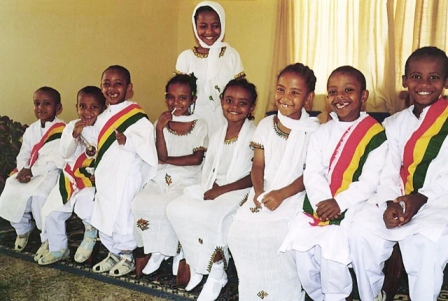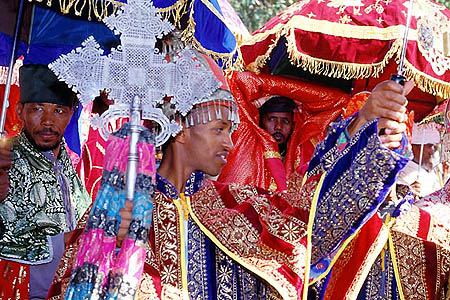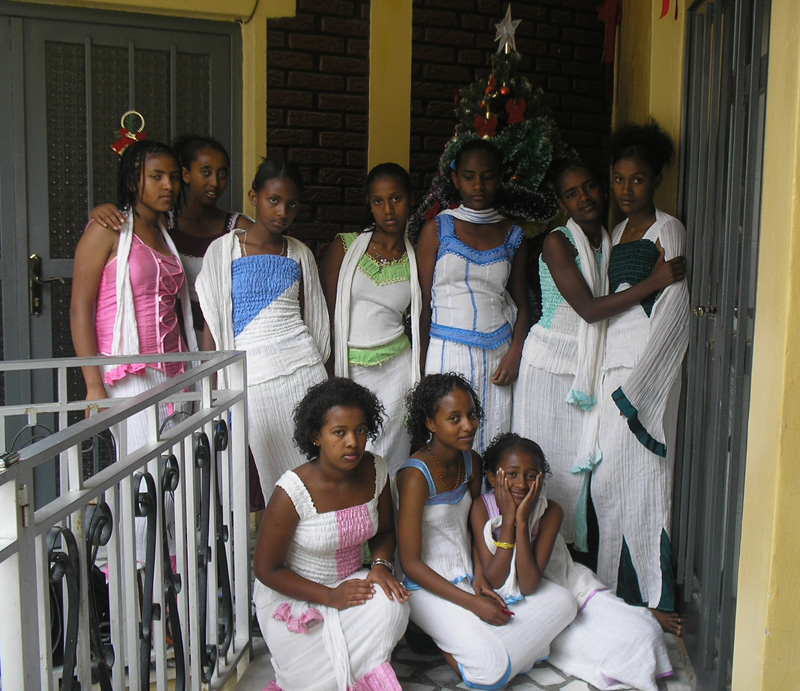
ETHIOPIAN CHRISTMAS – Genna (7 January)
While the Gregorian calendar celebrates Christmas on the 25th of December, Ethiopia still retains the ancient Julian calendar in which Christmas falls on January 7th (of the Gregorian calendar.) Its typically, a hot summer day and people in towns and villages dress up in their finest to celebrate.
The Ethiopian name given to Christmas is Ledet or Genna which, according to elders, comes from the word Gennana, meaning “imminent” to express the coming of the Lord and the freeing of mankind from sin. Genna is also the name given to a hockey-like ball game. Legend has it that when shepherds heard of the birth of Christ they rejoiced and started playing the game with their sticks. Men and boys in villages now play the traditional Genna game with great enthusiasm in the late afternoon of Christmas day.

Genna festivities begin early in the day, as early as 6:00am when people gather in churches for mass. For the clergy it has begun much earlier, 43 days before, with the fasting period leading up to Genna. This pensive fasting period is required of the clergy and is known as the fast of the prophets. The fast of Advent is carried out to cleanse the body and soul in preparation for the day of the birth of Christ. Everyone stands throughout the worship service for up to three hours.

Afterwards, people disperse to their homes to feast and the clergy break their fast. Food and drink are plentiful, with many homes preparing the special meals characteristic of all big festivities highlighted on the Ethiopian calendar. Food served at Christmas includes Doro Wat and Injera, a spicy chicken stew eaten with the sourdough pancake-like bread. Often, tej, a local wine-like drink made from honey, accompanies the feast.
Timkat is the greatest festival of the Ethiopian year, falling just two weeks after Ethiopian Christmas (January 7). It is usually a 3-day affair preceded by the eve of Timkat when the dramatic processions take place through a night of fasting to the great day itself and the commemoration of Christ’s baptism in the Jordan River. Ketera, the Eve of Timkat is when the priests bring out the Tabots – replicas of the 2 tablets of laws received by Moses, symbolizing the Ark of the Covenant – and they are reverently wrapped in rich cloth and taken ceremonially to a nearby stream or natural pool.
